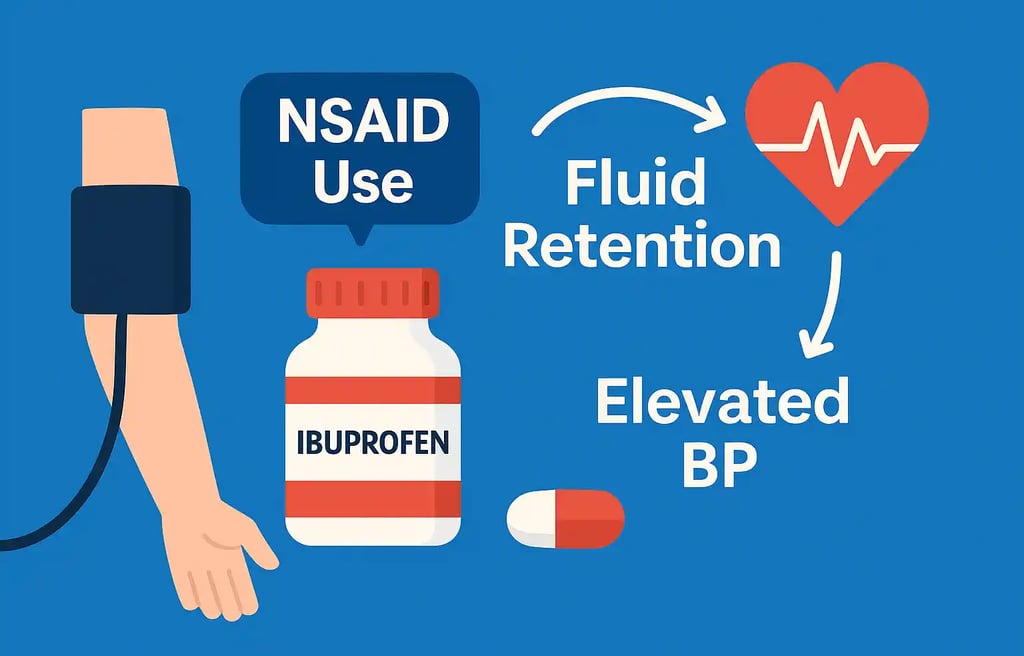Does Ibuprofen Raise Blood Pressure?
Discover how ibuprofen may raise blood pressure, who is most at risk, and safer alternatives for pain relief. Learn the effects on heart and circulation.


Does Ibuprofen Raise Blood Pressure?
Understanding How Ibuprofen May Affect Blood Pressure
Ibuprofen can cause a slight increase in blood pressure in some people, especially when taken frequently or in high doses. While occasional use may not have a significant impact, regular or long-term use of ibuprofen may contribute to elevated blood pressure, particularly in those with existing heart conditions or hypertension.
Ibuprofen works by blocking certain enzymes (COX-1 and COX-2) that play a role in inflammation and pain. However, these enzymes also help regulate kidney function and blood flow. When they're blocked, the kidneys may retain more sodium and fluid — leading to increased blood volume and higher blood pressure.
Key Points to Know
Occasional use of ibuprofen may have minimal or no effect on blood pressure in healthy individuals.
Long-term or frequent use can lead to fluid retention and increased blood pressure, especially in people with preexisting hypertension or kidney issues.
Older adults and those with cardiovascular conditions are more likely to be affected.
NSAIDs like ibuprofen may also reduce the effectiveness of certain blood pressure medications, such as ACE inhibitors or diuretics.
FAQ
Can a single dose of ibuprofen raise my blood pressure?
For most people, a single dose will not cause a significant change. However, if you already have high blood pressure or other cardiovascular concerns, even short-term use may warrant caution.
Is ibuprofen worse for blood pressure than acetaminophen?
Acetaminophen (Tylenol) does not typically raise blood pressure and may be a safer option for people concerned about hypertension. However, it's always best to consult a healthcare professional before choosing between medications.
What if I’m already taking blood pressure medication?
Ibuprofen may reduce the effectiveness of some blood pressure medicines, such as diuretics, ACE inhibitors, or ARBs. It's important to monitor your blood pressure if you're using both.
Are there any symptoms if ibuprofen is raising my blood pressure?
High blood pressure is often called a "silent" condition because it usually doesn’t cause noticeable symptoms, until it becomes severe. However, in some cases, people may experience headaches, dizziness, shortness of breath, or a feeling of pressure in the chest — but these symptoms are not specific and may not appear at all. If you take ibuprofen regularly, it’s important to monitor your blood pressure with a home monitor and during routine checkups, since even small increases can raise your risk of heart problems over time.
Disclaimer
This page summarizes information from trusted medical sources and is provided for general knowledge only. lt is not medical advice; Always consult your doctor or pharmacist for personal medical guidance (For a more comprehensive explanation please see the full disclaimer).
Resources
The information above has been gathered from several reputable sources, including the following:
[1] Mayo Clinic – Ibuprofen (Oral Route)
[2] MedlinePlus – Ibuprofen
[3] FDA – Ibuprofen Drug Safety Information


